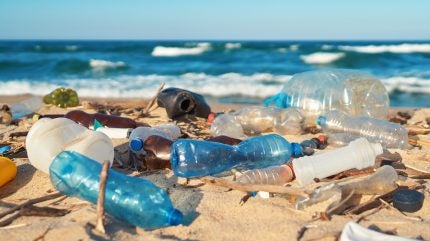
Representatives from the Pacific Islands have urged for the inclusion of legally binding obligations in the international plastics treaty, which is currently under negotiation.
This call to action (CTA) was made during discussions on the revised zero draft of the treaty at the Intergovernmental Negotiating Committee-4 (INC-4), which took place from 23 to 29 April 2024.

Discover B2B Marketing That Performs
Combine business intelligence and editorial excellence to reach engaged professionals across 36 leading media platforms.
The Secretariat of the Pacific Regional Environment Programme, in a statement, said that more than 171 trillion pieces of plastic are estimated to be floating in the oceans.
This could nearly triple by 2040 without intervention if unaddressed.
Samoa spokesperson Katenia Rasch called for the inclusion of a mechanism for the remediation of existing plastic pollution in the marine environment when it comes to Small Island Developing States (SIDS).
Rasch said: “This section must include legally binding obligations, which respect national circumstances and capabilities, to take actions to remediate or support remediation of existing plastic pollution, particularly in the marine environment. Relatively soft obligations to just cooperate will not solve the scourge of plastic pollution in our oceans.

US Tariffs are shifting - will you react or anticipate?
Don’t let policy changes catch you off guard. Stay proactive with real-time data and expert analysis.
By GlobalData“It is important that SIDS should not be disproportionately burdened by remediation activities, given that we are already disproportionately impacted by transboundary plastic pollution. Language on innovation and technology development for remediation could also be useful in this section.”
The Great Pacific Garbage Patch, the largest floating plastic accumulation on Earth, is located in international waters, where no single country is responsible for its cleanup.
Speaking on behalf of Pacific SIDS, Penivao Moealofa of Tuvalu pointed out the dual challenge faced by these countries: managing domestic waste and dealing with foreign marine plastic pollution.
Earlier this month, a new Greenpeace International-commissioned poll revealed that almost 66% of Americans support a Global Plastics Treaty aimed at banning single-use plastic packaging.





